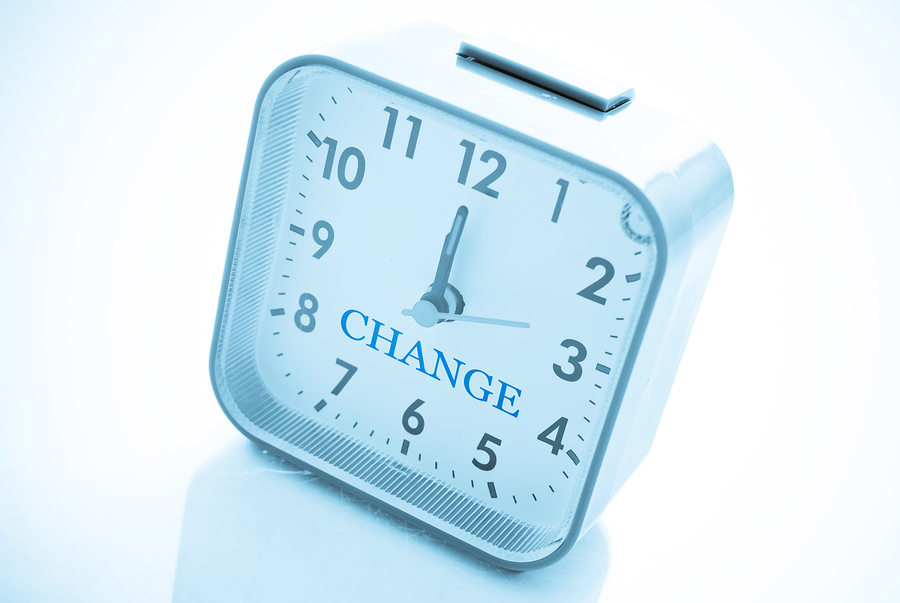 Every six months, much is written about the seasonal time change. Either the change from standard to daylight savings time or daylight savings time to standard. But, many of us experience time changes more often than every six months by travelling--and changing time zones--for business, vacation or educational reasons. And, like the twice-yearly fall back or spring ahead by an hour, long distance travel takes its toll on sleep schedules and natural circadian rhythms.
Every six months, much is written about the seasonal time change. Either the change from standard to daylight savings time or daylight savings time to standard. But, many of us experience time changes more often than every six months by travelling--and changing time zones--for business, vacation or educational reasons. And, like the twice-yearly fall back or spring ahead by an hour, long distance travel takes its toll on sleep schedules and natural circadian rhythms.
It can also negatively affect one’s mental health.
Jet lag has long been recognized as a bothersome but common part of long distance travel. Yet recognition of the potential for it to pose a danger to one’s mental health is just becoming commonplace.
In his article last week for Business Insider UK, writer Jacob Shamsian described the latest studies of jet lag and its influence on the mind as well as the body. Studies, he explained, that have surprisingly been taking place since as early as 1968.
Shamsian referred to the explanation of jet lag posted on the website of the National Institute of General Medical Sciences describing jet lag as the result of a marked disruption of circadian rhythms, resulting in physical and emotional symptoms.
And jet lag, Shamsian wrote, can be “something more sinister: a trigger for mental illness.”
The idea of it challenging one’s mental health came to light earlier this year, said Shamsian, when New York Times magazine writer Jon Mooallem discussed the repercussions of an extreme example of jet lag at a Pop-Up Magazine performance. Pop-Up Magazine is a ‘live’ magazine bringing stories to life on stage.
Although Krasnoff died of a heart attack that year, Mooallem spoke to her grandson and later hypothesized that hers may have been “history’s only lethal case of jet lag”. The notion caused him to begin investigating the connection between jet lag and mental illness.
The term jet lag explains, fundamentally, the profound physical and psychological effects people experience after a long flight resulting in a different time zone. This occurrence will throw off a body's circadian rhythm, which is the internal 24 hour clock that tells people when they should be sleeping and awake.
Mooallem is not the only person investigating the incidence of jet lag induced mental illness. There exists plenty of verified research demonstrating that jet lag is much more than just a tired feeling, according to Shamsian.
While scientists have studied the effects of jet leg on one’s psychological wellbeing since at least 1968, “one of the most comprehensive studies on the subject was published in 1982 and found jet lag as the culprit to psychiatric breakdowns,” he added.
In 1982, researchers looked at two years-worth of accounts of “186 patients who were admitted . . . to the nearest psychiatric facility following a breakdown at the airport,” Shamsian said. The synthesis showed “half of them were previously diagnosed as schizophrenic, and most of the rest were diagnosed with other mental illnesses.”
The study’s authors found that travelers from east to west had a greater experience of sleep loss and higher frequency of depressive diagnosis than those who hadn't. And in contrast, people who flew from west to east had a higher incidence of hypomania, which manifests itself as a state of higher, restless energy.
The 1982 findings have been supported by other, similar major studies done in 2002 and 2011. In 2002, headed by Gregory Katz, researchers from the Kfar Shaul Mental Health Center in Jerusalem studied psychiatric illnesses among foreign tourists.
Katz’s study explained, “The possible association between jet lag and psychotic or major affective disorder was evaluated according to the following criteria: (1) absence of major mental problems before the flight or good remission of an existing disorder one year or more before flight; and (2) the appearance of psychotic or major affective syndromes during the first seven days after landing.”
Results of his study validate the current understandings of the potential for the negative influence of jet lag on mental health and illustrate that further research is warranted as a possible link was identified.
Shamsian clarified that the studies’ findings do not indicate that jet lag will cause mental illness, but that it can trigger episodes or exacerbate already existing DSM-5 conditions and disorders due to the circadian rhythm disruption.
Shamsian referred to information provided by New York’s Weill Cornell Medical College clinical psychiatry professor Richard A. Friedman, in his 2017 article for the New York Times. In it, Friedman explained that treatments for jet lag are similar to some methods used by psychiatrists to treat patient depression and bipolar disorder.
Friedman wrote that clinicians have known for years a definite link between restful sleep, sunlight, and personal mood. “The notion that we can manipulate sleep to treat mental illness has also been around for many years.”
References
Arehart-Treichel., J., (May 2002). Jet Lag May Trigger Mental Illness Relapse. American Psychiatric Association: Psychiatric New. https://psychnews.psychiatryonline.org/doi/10.1176/pn.37.9.0029
Friedman, R.A., (March 10, 2017). New York Times. Yes, Your Sleep Schedule Is Making You Sick. https://www.nytimes.com/2017/03/10/opinion/sunday/can-sleep-deprivation-cure-depression.html
Katz. G., Knobler, H.Y., Laibel, Z., Strauss, Z., Durst, R., (January-February 2002). U.S. National Library of Medicine National Institutes of Health. Time zone change and major psychiatric morbidity: the results of a 6-year study in Jerusalem. https://www.ncbi.nlm.nih.gov/pubmed/11788917
Shamsian, J., (March 7, 2018). Business Insider, UK. Jet lag is more than just annoying—it could be a trigger for mental illness. http://uk.businessinsider.com/jet-lag-mental-illness-treatment-2018-3